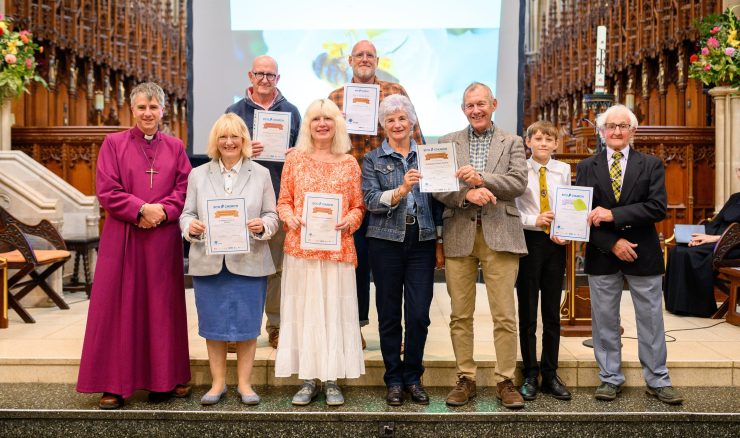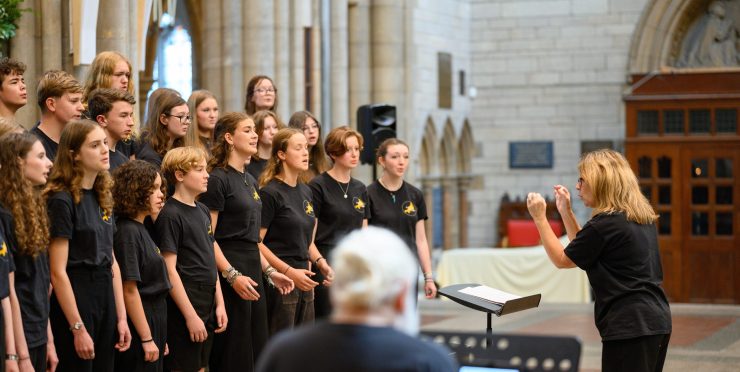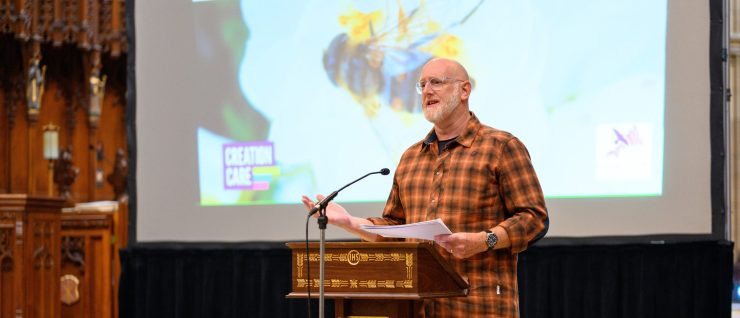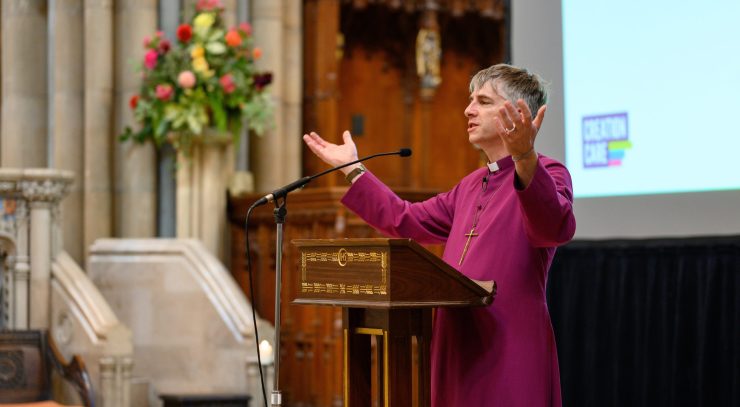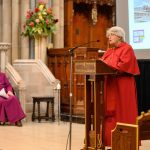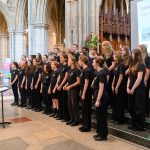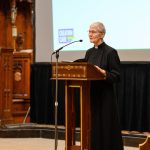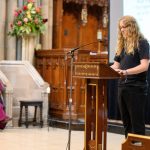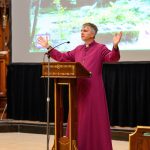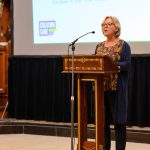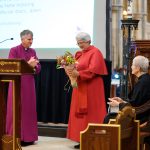A service for climate justice
A special Creation Care service was held at Truro Cathedral on Saturday, September 16 to highlight the urgency of environmental action, both locally and globally, and to emphasize the Diocese of Truro’s commitment to climate justice.
The service included performances by the Cornwall Youth Choir.
“The choir were totally brilliant – they stole the show,” said Rosey Sanders, one of the organisers of the event.
There was also a video presentation by children from St Uny Academy in Carbis Bay. The primary schoolchildren had been filmed cleaning up a local beach and arguing for the need to “take action now”.
During the service, the diocese’s Kernow Green Church awards were received by the parishes of Highertown, Padstow and Ludgvan. Representatives of St Kea, St Stithians, Madron, Redruth and Bradoc were there to accept their awards in the national Eco Church scheme. The awards were presented by Diocesan Environment Officer, the Reverend Ben Lillie.
“The Creation Care service of celebration and thanks is such a pivotal part of our ongoing work to cherish creation, cut carbon and speak up,” Ben said. “When we recognise and honour all the efforts, however small or big, of our amazing champions, we’re saying this work is valuable, and each of us is valuable and has a unique role to play. It’s a genuine privilege to work with such an extraordinary group of volunteers and celebrate their successes.”
The service also coincided with the news that the diocese has earned its own diocesan Eco Church award.
The Right Reverend Hugh Nelson, Bishop of St Germans, spoke during the service about the crucial importance of the Church’s focus on climate justice.
“Climate change isn’t a problem for the future,” he said. “Climate change is killing people today, and the people who are suffering are the poorest and most vulnerable.”
Bishop Hugh went on to address criticisms that such debates shouldn’t be the province of the Church.
He said: “Sometimes the church, and those who speak publicly on its behalf, are accused of ‘being too political’ and told to stop and stick to the spiritual stuff. But I challenge anyone to read the Bible, with any level of engagement at all, and not to draw the conclusion that God is particularly concerned with those who are poorest and most vulnerable.”
He argued that this is why the Church needs to address its responsibilities in this area: “Because climate change is first of all one of the primary causes of suffering to people who are poor and vulnerable, and because those people are a core focus of God’s attention, climate change matters to us. More than that, climate change and its consequences are amongst the things that we have to design our lives around.”
